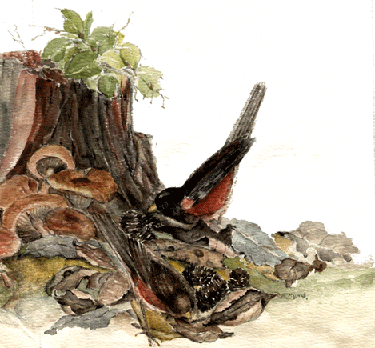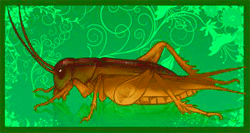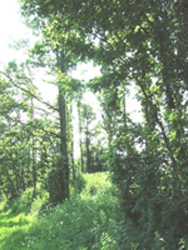 Anne Bradstreet
Anne BradstreetA Muse for Mother
Anne Bradstreet was born in 1613 in the household of the Earl of Lincoln, in privileged surroundings, to Dorothy and Thomas Dudley, Steward of the Earl of Lincoln’s estates. Anne was strictly and religiously trained in her father’s nonconformist beliefs. In a biographical episode, she wrote, ‘I found much comfort in reading the Scriptures, and as I grew to have more understanding, so the more solace I took in them. ‘[But] about 14 or 15, I found my heart more carnall, and sitting loose from God, vanity and the follyes of youth took hold of me. About 16, the Lord layd his hand sore upon me and smott me with the small pox. I besought the Lord, and confessed my Pride and Vanity and he was entreated of me, and again restored me.
‘After a short time I changed my condition and was marryed, and came into this Country [at age 18], where I found a new world and new manners, at which my heart rose. After I was convinced it was the way of God, I submitted to and joined in the church at Boston.’
In a window of St. Botolph’s Church, Boston, Lincolnshire, a woman in Puritan clothing carries a basket like a nest with eight fledgling birds. It is an allegorical depiction of Anne, herewith a typical Massachusetts Bay woman: the mother of eight children, home-keeper, cook and milliner, educator of her family.

When each of you shall in your nest
Among your young ones take your rest,
In chirping language, oft them tell,
You had a Dam that lov’d you well,
That did what could be done for young,
And nurst you up till you were strong,
And ‘fore she once would let you fly,
She shew’d you joy and misery;
Taught what was good, and what was ill,
What would save life, and what would kill.
Her legacy to us lies in her Puritan piety, expressed with a woman’s wisdom. This feminine view of the spiritual world of a ‘new’ England comes down to us thru her major work, The Tenth Muse...Lately Sprung up in America...by a Gentlewoman in those parts published in London in 1650, with a second edition in ‘new’ Boston in 1678. The preface ‘To my dear children’ reads,
This Book by Any yet unread
I leave for you when I am dead,
That being gone, here you may find
What was your liveing mothers mind.
Make us of what I leave in Love
And God shall bless you from above.
In true Puritan piety, in orthodox examples of Puritan belief, she tells us that, ‘I have not studyed in this you read to shew my skill, but to declare the Truth; not to sett forth my self, but the Glory of God.’
In her Meditations and Contemplations, Anne showed knowledge in music:

I heard the merry grasshopper then sing,
The black clad Cricket, bear a second part,
They kept one tune, and played on the same string,
Seeming to glory in their little Art.
Shall Creatures abject, thus their voices raise?
And in their kind resound their makers praise:
Whilst I as mute, can warble forth no higher lays?
She could be proverbial: ‘A sore finger may disquiet the whole body, but an ulcer within destroys it: so an enemy without may disturb a Commonwealth, but dissentions within overthrow it.’ And, ‘Sore laborers have hard hands, and old sinners have brawny consciences.’ And she had a love of nature:

Under the cooling shadow of a stately Elm
Close sat I by a goodly Rivers side,
Where gliding streams the Rocks did overwhelm;
A lonely place, with pleasures dignified.
I once that lov’d the shady woods so well,
Now thought the rivers did the trees excel;
And if the sun would ever shine, there would I dwell.
In her technical skills, Anne may remind us of Emily Dickinson in her obedience to poetic form, to meter and rhyme, to homely subjects and topics, to interest in nature and in her surroundings. But her early piety, motherly affection and poetic sensibility shine through every line.
Sources and further reading:
An Account of Anne Bradstreet, the Puritan Poetess (Caldwell, 1898); Anne Bradstreet, the Worldly Puritan (Stanford, 1925); The Works of Anne Bradstreet (Ellis, 1932); Alas, All’s Vanity, or a Leaf from...Poems by Anne Bradstreet (Whicher, 1942) ; Anne Bradstreet, “The Tenth Muse” (White, 1971); The Works of Anne Bradstreet (Hensley, 1981); Critical Essays on Anne Bradstreet (Crowell, 1983); Anne Bradstreet Revisited (Rosenmeier, 1991); Mistress Bradstreet (Gordon, 2005).
Photo caption: Anne Bradstreet, St. Botolph’s Church, Lincolnshire.
MORE/ WIKIPEDIA